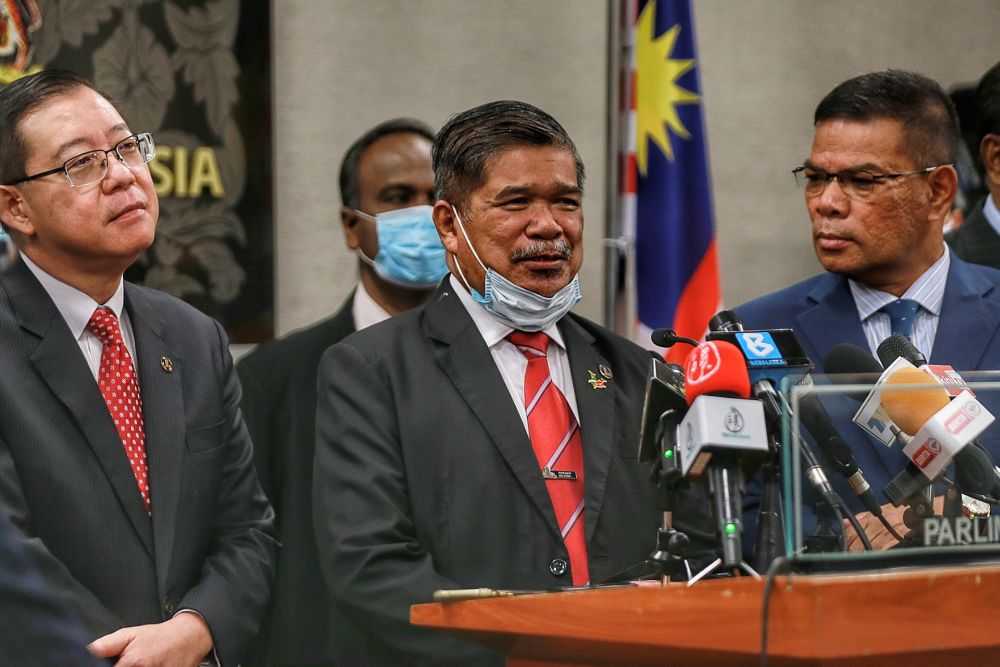.jpg)
Subscribe to our Telegram channel for the latest updates on news you need to know.
KUALA LUMPUR, March 9 — In order to sustain diplomatic relations between Malaysia and Saudi Arabia, former defence minister Mohamad Sabu today urged Prime Minister Tan Sri Muhyiddin Yassin to refrain from engaging on the Yemeni civil war unless it is clearly mandated by the United Nations (UN).
In a joint statement with former deputy defense minister Liew Chin Tong, he added that the interest of citizens should be prioritised in the handling of the country’s foreign policy — and that the lives of its military personnel cannot be abused solely for political interests.
“Malaysia and Saudi Arabia have always had close ties, but the handling of this relationship must be based on the principle of Malaysian neutrality.
“Unfortunately, this principle was ignored by Foreign Minister Datuk Seri Hishammuddin Hussein six years ago when he directly engaged Malaysia in military operations during the Yemeni civil war,” they said.
The duo was referring to a Malaysian operation dubbed Ops Yemen 1 in April 2015, which involved two C-130 aircraft from the Malaysian Air Force that were deployed to repatriate Malaysians caught between the fighting in Yemen.
“In June 2015, the mission was changed to assist Saudi-led joint forces in the fight against the Houthi group. This phase was known as Ops Yemen 2, at which the crew of the two aircrafts sent were directed to fly supplies, ammunition and explosives for Saudi forces and their allies,” they said.
They added that in an internal memo between the Policy and Strategic Planning Division of the Ministry of Defence and the Armed Forces (ATM), the government had been advised that the involvement of Malaysian forces in the Yemeni civil war would greatly affect the country’s image as a neutral party.
The unit’s change of arrangement also violated executive procedures, the duo said, as the decision to go ahead with Ops Yemen 2 was not discussed at Cabinet level and additional provisions for it were not yet debated in Parliament.
“The initiating directive was not given by the National Security Council to allow military personnel to engage with Saudi-led military operations.
“Furthermore, at the time, the Memorandum of Understanding on Defence between Malaysia and Saudi Arabia outlining the limits and terms for involvement was not yet signed. It is clear that Ops Yemen 2 was not only wrong in terms of principle, but also in terms of procedure,” they said.
They added that ATM are only authorised to participate in peacekeeping operations under the purview of the UN, and that missions in Congo, Lebanon, Bosnia-Herzegovina, Somalia and on the Iraq-Kuwait border were only peacekeeping missions.
“We are proud of the image the ATM has internationally, and that image should not be defiled,” they said.
On March 6, Muhyiddin flew to Saudi Arabia for a four-day official visit to the country, followed by an official visit to the United Arab Emirates (UAE) from [March 9] to March 11.
The visit is said to provide an opportunity for both sides to strengthen traditional areas of cooperation and forge greater partnership in new areas, such as new technology and innovation, as well as energy collaboration.
The official Haj quota as well as Haj and umrah procedures for Malaysian pilgrims are also expected to be discussed during the visit.
Muhyiddin had performed the minor pilgrimage of “umrah” in Mecca, followed by a visit to Medina on the invitation of King Salman bin Abdulaziz Al-Saud, ruler of Saudi Arabia.
Muhyiddin’s official programme in UAE will take place in Abu Dhabi and Dubai on March 10, which includes meetings with Crown Prince of Abu Dhabi and Deputy Supreme Commander of the UAE Armed Forces Sheikh Mohamed bin Zayed Al Nahyan, and UAE Prime Minister Sheikh Mohammed bin Rashid Al Maktoum.
Throughout the visit, Wisma Putra pointed out the Malaysian delegation will be subjected to strict Covid-19 preventative standard operating procedures as agreed upon by health authorities of Malaysia, Saudi Arabia and UAE.

